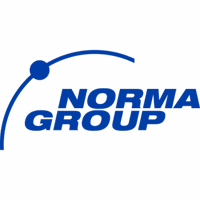This post is also available in: Deutsch
Water is a vital resource and demand is constantly increasing. But as the world’s population grows and resource-intensive economic development progresses, water reserves and the corresponding infrastructure are reaching their limits in many countries. Despite the fact that more than two thirds of the earth’s surface is covered with water, less than three percent of it is actually drinkable.
Roughly 55 million people throughout the world are impacted by drought every year – they do not have access to sufficient drinking water or to water for daily hygiene. Droughts are the greatest threat to livestock and crops almost everywhere in the world. They threaten people’s livelihoods, increase the risk of disease and death and result in mass migration. 40% of the world’s population is affected by water scarcity and drought is putting 700 million people at risk of being displaced from their home countries by 2030.
Climate change is making water scarcity significantly worse – intensifying floods and droughts, changing precipitation patterns and accelerating glacier melt and the rise of sea levels. These climatic changes are making the water supply increasingly unpredictable. The world is facing a water and hygiene crisis largely driven by climate change.
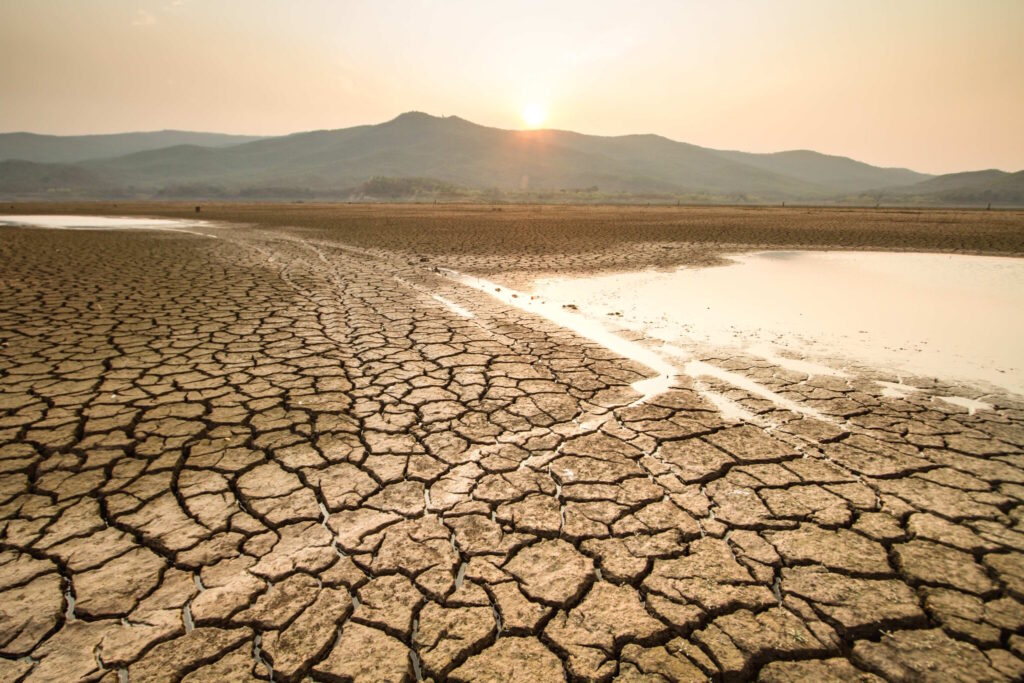
But what does all this have to do with NORMA Group? NORMA Group offers a wide range of innovative water management solutions, especially in the field of irrigation and drainage. Efficient use of scarce water is becoming increasingly important throughout the world and is an essential part of our Water Management business.
There are currently a number of global trends in water management, some of which are more general and others more specific. We will present three global trends in the field of water management:
Water-saving technologies
Efficient irrigation is becoming increasingly important given the ongoing scarcity of water resources. Drip irrigation systems represent a resource-saving and water-saving option for and are therefore becoming increasingly important.
With drip irrigation, pipes or hoses transport the water directly to the roots of the plants and deliver it in precise quantities. Such systems can reduce water consumption by thousands of liters per year compared to sprinklers or manual irrigation methods, thus actively contributing to water conservation.
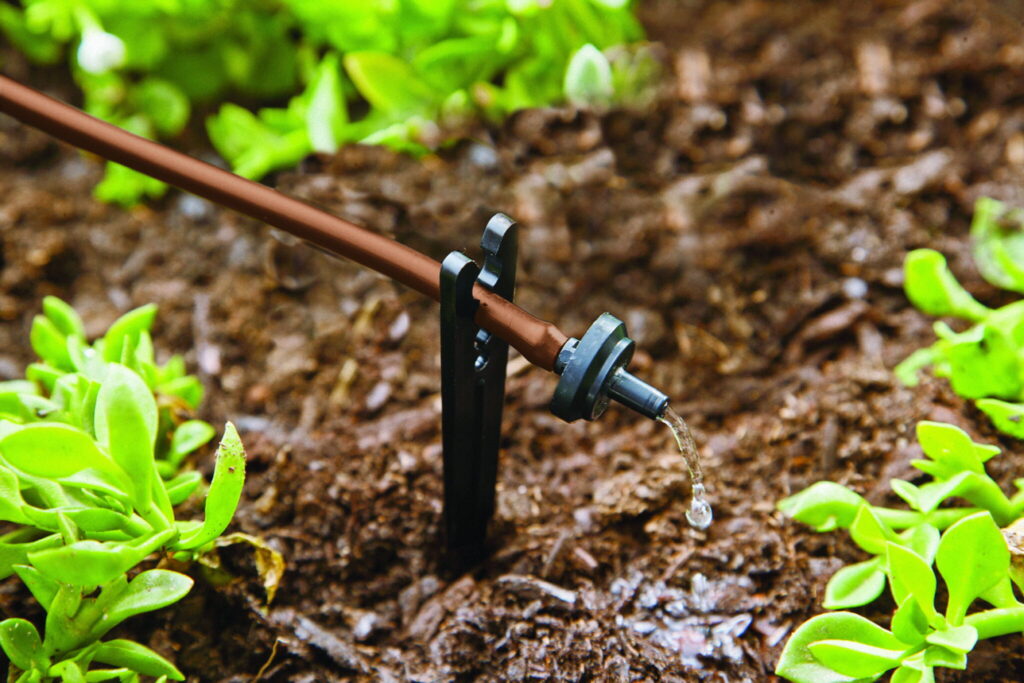
A drip irrigation system delivers water directly to the roots of the plant, ensuring that less water runs off or evaporates.
Smart water management
Smart water management systems use technology to improve water distribution, support the efficient use of water and generally promote the sustainable management of water resources. These systems collect, simulate and process data in order to optimize decision-making processes. Development and application of digital technologies are therefore essential for efficient and sustainable water management both today and in the future.
Wi-Fi irrigation computers for automatic irrigation systems, for example, help to save water when they are used instead of manual irrigation. Particularly in combination with a drip irrigation system, water consumption can be reduced by up to 70 percent compared to conventional irrigation systems.
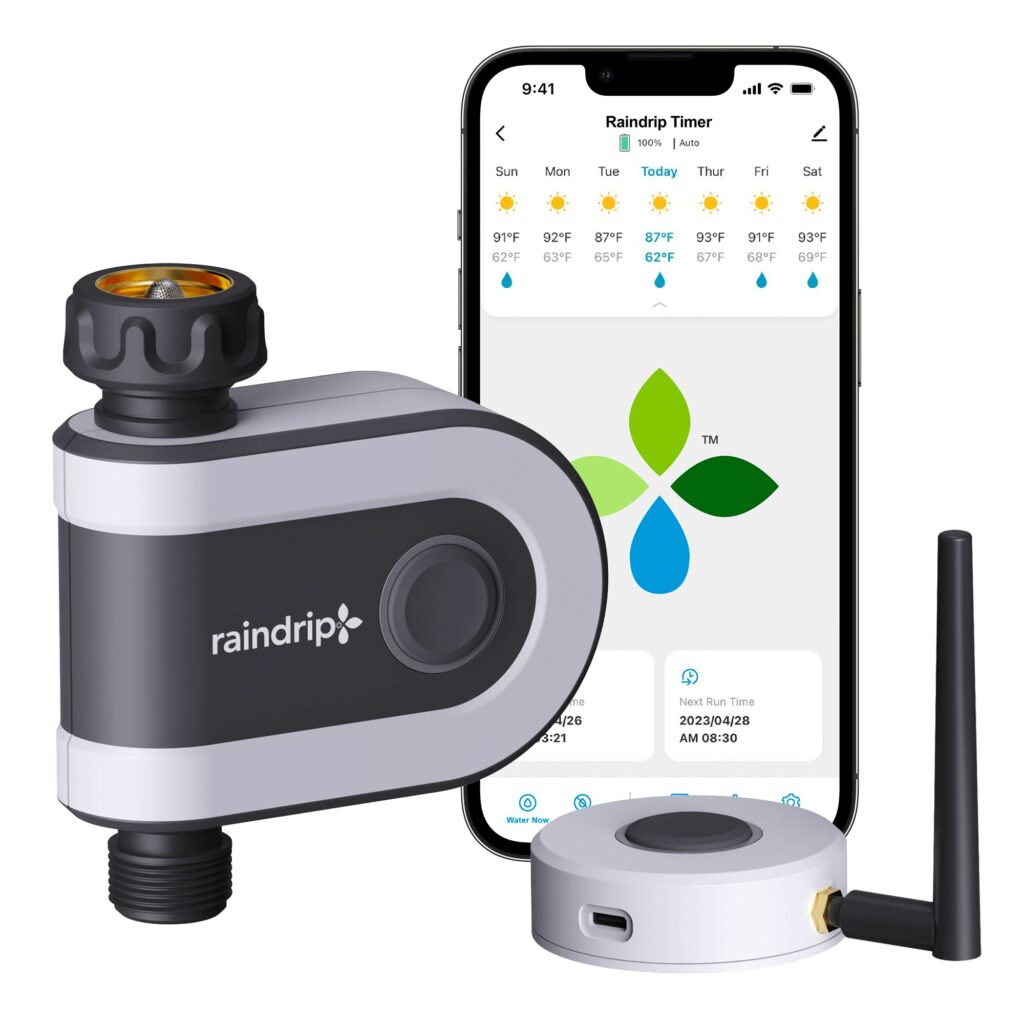
App-supported irrigation computers with WiFi enable automated, needs-based and resource-saving irrigation
Water recycling
Because water resources on our planet are limited, it is vital that we reuse water. Treating and reusing water not only prevents the depletion of precious resources, it also prevents pollutants from entering oceans, rivers and lakes. Wastewater treatment thus helps to reduce the ever-increasing gap between water supply and water demand.
Resource conservation is improved through the correct use of treated water. This process is aided by the different color coding of valve boxes or drip lines, among other things. Technological advances continue to improve the efficiency of water treatment and use and secure the water supply even in times of water scarcity.
The purple color coding indicates the use of recycled water in the irrigation industry.
Social commitment
Water management applications are by no means limited to technical solutions and innovations. Social commitment also plays an important role when it comes to improving access to clean water throughout the world.
NORMA Group has been working with children’s rights organization Plan International Deutschland (Plan International Germany) for many years as part of its efforts to improve water supplies throughout the world. This is what the “NORMA Clean Water” project stands for. It is an undertaking that NORMA Group has been using to actively improve the living conditions of people in Brazil since 2017.
Climate change has also resulted in an increase in droughts and floods in the Codó and Peritoró project areas. Through the construction of water supply systems, the development of community gardens and the implementation of workshops to teach basic hygiene practices, the project reached approximately 4,330 people in the second phase, including 1,464 children.
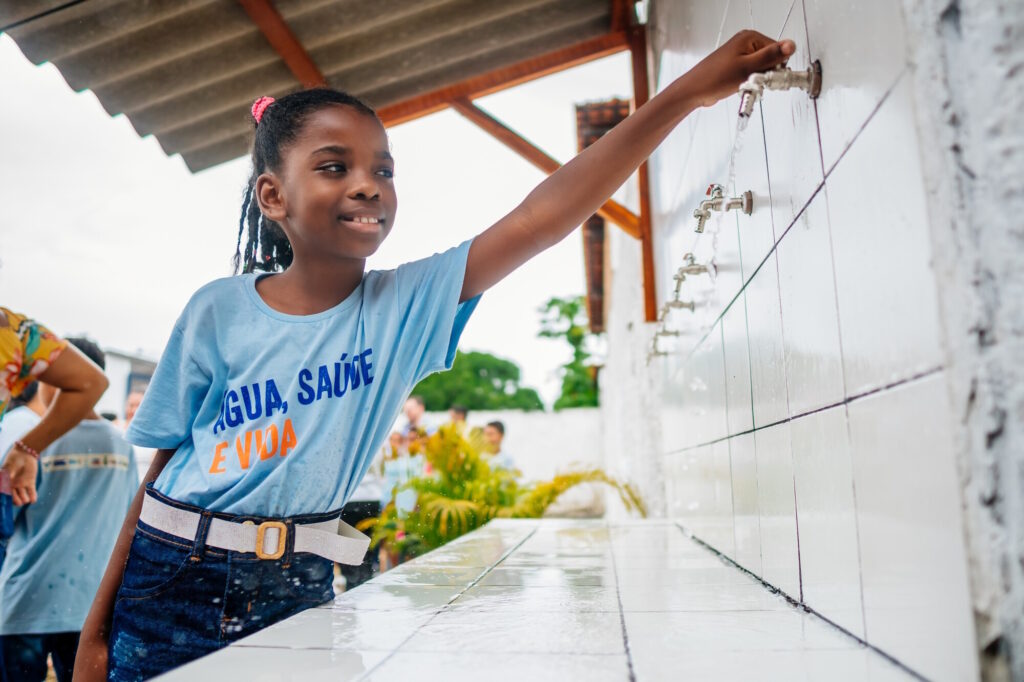
A look at the future
At NORMA Group, we provide solutions to some of the world’s most pressing global challenges and are driving them forward through innovation. We closely and continuously analyze and monitor relevant megatrends as well as their risks and opportunities associated with them. With our extensive knowledge, experience and innovative product solutions, we are in a position to successfully help our customers overcome the challenges posed by these global developments.
With the expansion of our activities in the field of water management, we are creating a synergy between our corporate growth targets and our commitment to sustainable responsibility.
